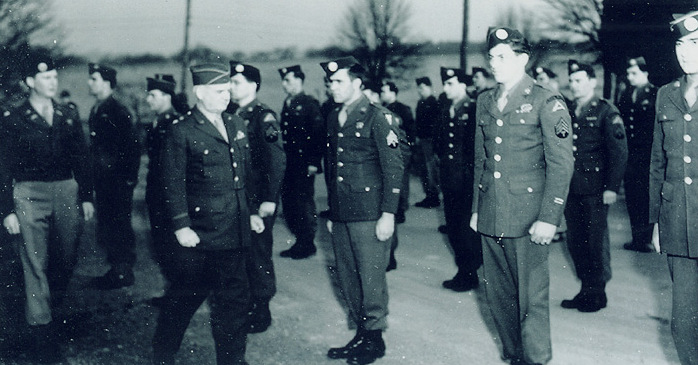Congress has passed a bill that gives the Congressional Gold Medal to spies that served behind enemy lines in Germany and the Pacific Theater during World War II. It is now up to President Obama to sign it into law or veto it.
The Office of Strategic Services was a predecessor to the CIA. It began in 1942 and had almost 13,000 people working for it at one point. Notable members of the OSS include actor Sterlin Hayden, director John Ford, baseball player Mo Berg, Chef Julia Child and eventual CIA director William Casey.
It is unknown how many former OSS employees are still alive. Estimates vary from a few dozen to one hundred.
The bill had passed the Senate and had enough sponsors in the House of Representatives, but a rule in the House that requires a special waiver to give the Congressional Gold Medal to groups of people held the bill up. There was also concern from lawmakers that too many Gold Medals had been issued and the prestige of the award was lessened by its frequent usage.
Many of the World War II spies, many in their 90s, were actively lobbying for the recognition. House Majority Leader Kevin McCarthy, R-Calif., was able to get the waiver this month. He needed to get approval from all the members of the Republican leadership in order to obtain it.
The House approved the bill along with two others, one that grants the Gold Medal to Filipino veterans and the other for Merchant Marines in World War II. The bills for spies and Filipino soldiers are headed to the President for signing while the Merchant Marine bill heads to the Senate for their approval.
Rep. Bill Foster, D-Ill., used the OSS operatives as a lesson that “America is at its best when we work together with our long-standing allies and when we recruit diverse personnel to serve our government.”
Sen. Roy Blunt of Missouri urged President Obama to quickly sign the bill into law and recognize these intelligence officers that played a crucial role in defeating the Axis powers.
The lengthy delay in getting the bill passed was a source of frustration for the OSS members lobbying for its passage.
Hugh Montgomery, 93, of McLean, Virginia, was in the OSS during WWII. He was one of the first Americans to enter the Buchenwald concentration camp and jumped into Normandy on D-day.
He thought that it took too long to get the bill passed. “It was sorely needed,” he said about the OSS. “We had to fight and win the war.”
